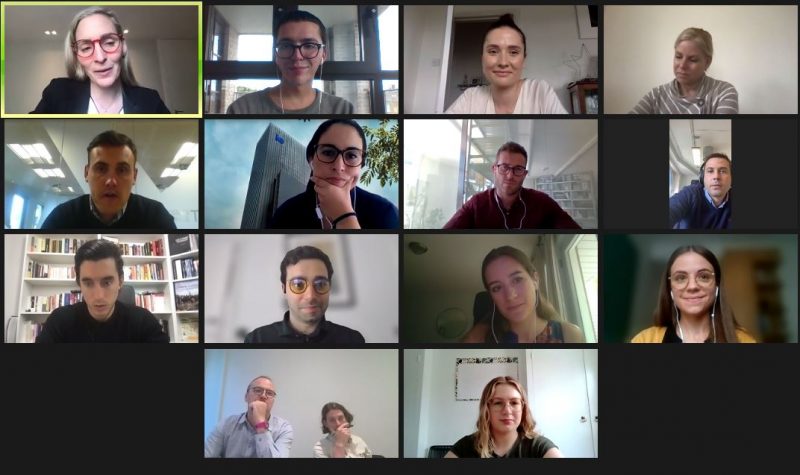We’re pleased to have launched our latest initiative, the NextGen International Talent Taskforce. The group is made up with members from London, Paris, Montreal, Belgium, Madrid and South Africa to name a few. The Taskforce is a forum for the international NextGen community to make their voices heard, improve their knowledge and grow their networks. The group helps promote debate on key topics, engage with global industry stakeholders and encourages multi-disciplinary collaboration to guide the future of cities and ensure they are vibrant world-class places for businesses and people.

At our first roundtable meeting, we discussed international examples of sustainable best practice, sharing both ideas and knowledge. Some notable discussion points were surrounding:
New Business Models
A number of new PropTech companies have launched that support the upcycling of materials in construction sites. A new marketplace for second-hand stock materials and even bonds to fix the transaction price as a sustainable solution to construction and design material wastage would help in the challenge towards creating greener cities. One member noted that they were able to specify the use of second-hand materials in the raised access floors, since this was the only element that could provide some certainty to the client. Additionally, it was also noted that blockchain is a potential solution to issue and track bonds and forecast the upcoming stock of materials. Other new business models such as renting out long life materials, such as steel, were also mentioned as a sustainable solution.
ARUP has pioneered a building made of steel which rents the beams for 100 years, then it is dismantled before reusing them again. Designing steel for re-use will reduce carbon emissions and help build a more resilient commercial future for the steel industry.
Digital Twins and BIM models
Members noted that digital twins for buildings will allow the monitoring of surplus materials. These digital twins go far beyond BIM models in supporting both the construction and operation of a building. One of our members highlighted the reason behind this is that BIM is not the most effective tool at early stages of the project. It was also noted that although digital books are mandatory, they are typically left with the building when completed. However, often tenants and facility managers don’t know how to use them and usually the way of operating a building does not reflect the sustainable intentions of the design.
Sustainable innovation
The discussion around political regulation of planning and the disruption this causes to innovation was a common theme across Europe. Anecdotes were shared from members regarding the development of the new Imperial College Campus in White City, London and the requirement for a gas supply due to regulations. In addition to this, it was noted that green and biodiverse rooftops were a requirement for new developments in Paris.
The International Talent Taskforce (ITT) will meet bi-monthly and the output of the discussions shared by both IE and CPA for members and alumni to digest. The focus of the ITT will be sustainable development and sustainable practice in the run up to COP 26 in November.
If you would like to contribute to the International Talent Task Force please contact team@cwpa.org.uk.
Emily Laverick
CPA NextGen Vice Chair
Built-ID – Marketing Director


